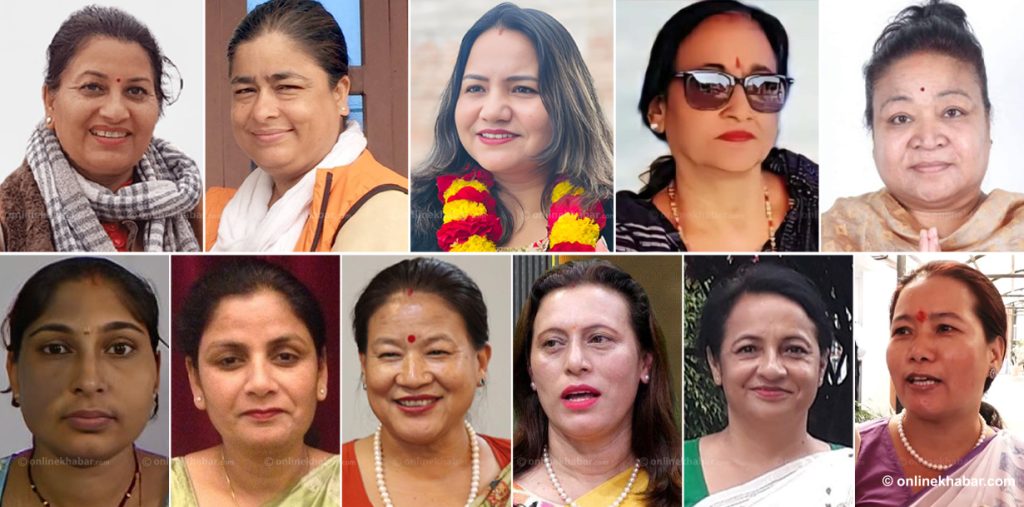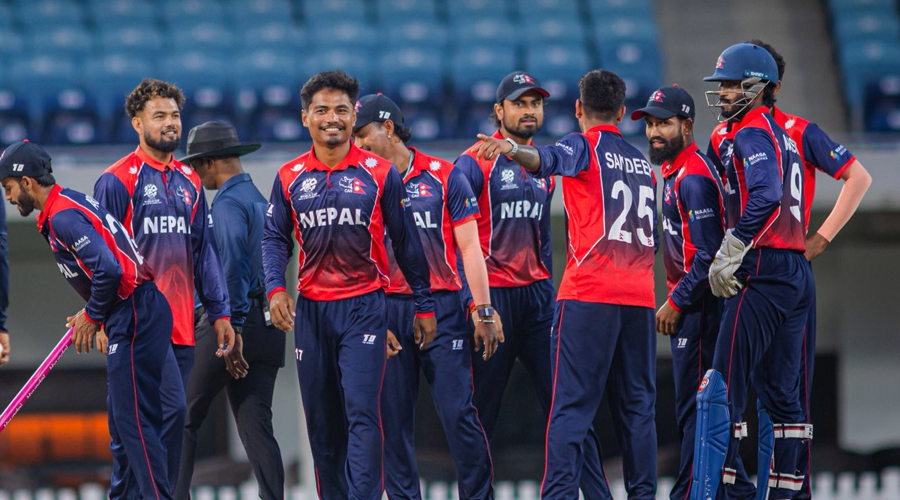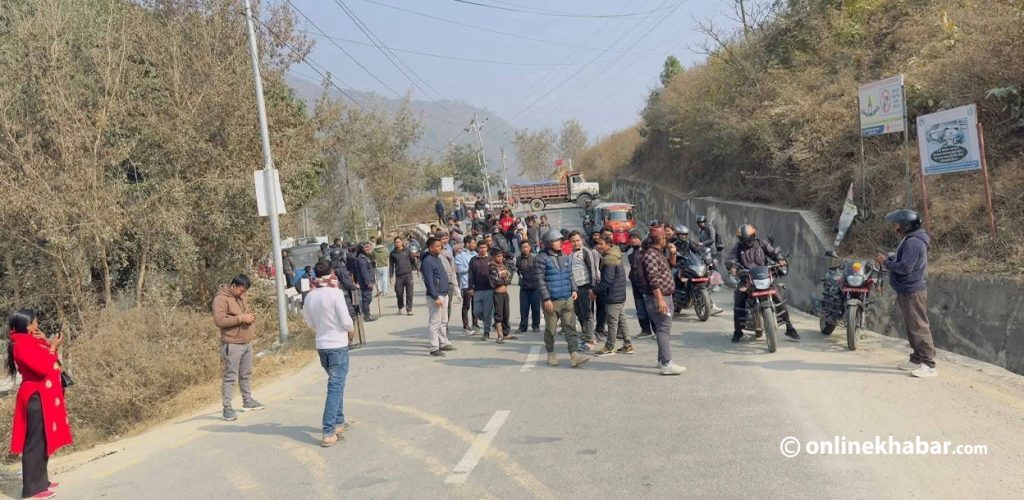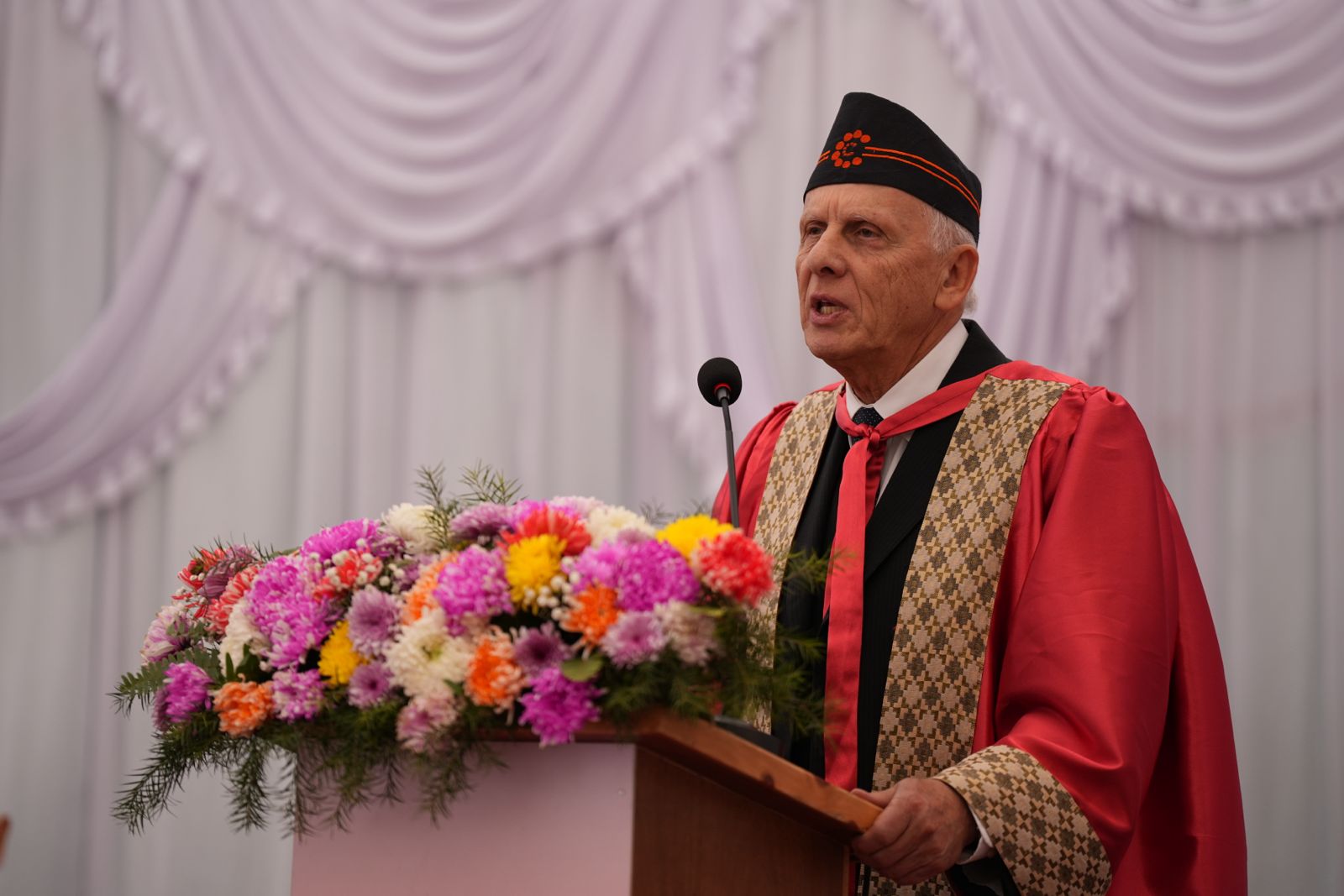
Govinda Raj Joshi, a person who has been convicted of corruption by the Special Court, registered his name to contest the Nepal elections for the House of Representatives membership from Tanahun 1. He was already removed by the Nepali Congress party as its member after he showed his desire to contest the election from the constituency that senior leader Ram Chandra Paudel also claimed. Following his expulsion from the party, Joshi filed his candidacy independently.
In 2017, his candidacy was voided by the Returning Officer’s Office. But, this time, he has been allowed to contest.
Similarly, former deputy prime minister Bijaya Kumar Gachhadar also gave his name to contest the elections from Sunsari 3. Gachhadar has been accused of irregularity in the Lalita Niwa land case, which is currently sub-judice at the Special Court. He was released on bail of Rs 1 million by the court.
Rastriya Prajatantra Party’s Bikram Pandey also registered his name from Chitwan 3. Pandey had also been accused of corruption in the Sikta Irrigation Project, but the Special Court did not find him guilty. But, the Commission for the Investigation of Abuse of Authority (CIAA) has challenged the decision at the Supreme Court as it believes Pandey is guilty. If he is found guilty, he will be suspended from his position as a lawmaker should he win.
It is clear that even if these people win the Nepal elections, they will not be able to become lawmakers as they have not been acquitted by the courts. However, there is no law to bar them from contesting the elections, and experts say this loophole in the election law has made people question the integrity of the parties and candidates.
The legal provisions

In the anti-corruption law, there is a provision that those accused of corruption but not acquitted by the court cannot hold public office. The CIAA itself writes to the government asking it to not allow those accused or convicted to assume office. Yet, these people have time again given their names to contest the Nepal elections despite their shady past.
Laws have determined the criteria to become a candidate for the House of Representatives and the provincial assemblies. If a person has been convicted of a criminal case, s/he will have to wait two years after serving the sentence to file candidacy in the Nepal elections. Unless they do that, they cannot register their names.
The law also forbids people convicted of corruption, rape, human trafficking, money laundering and kidnapping from filing their names. People who’ve been given life imprisonment are also forbidden from contesting elections.
Guru Prasad Wagle, a deputy spokesperson of the Election Commission, says that Nepal’s law cannot stop people in jail accused of a crime from contesting the election.
“Only people who have been convicted of a crime can’t be candidates,” says Wagle.
Govinda Raj Joshi, a former minister, who has been facing corruption charges for the past 18 years has time and again tried to become a candidate. The Special Court has convicted him of corruption but the Supreme Court has asked the Special Court to review its decision. The case is still sub-judice at the Supreme Court as the Special Court believes that Joshi is guilty of corruption. As the final verdict is yet to come out, Joshi is allowed to contest the Nepal election.
Gachhadar was also given a ticket, but he too has been accused of corruption in the Lalita Niwas case. Following the accusation, he was even suspended as a lawmaker but since the case is still ongoing, he is allowed to contest the election.
Resham Chaudhary was accused of a murder case but was yet to be convicted when he ran and won the 2017 House of Representatives election in Kailali. Despite being elected, he remained on the run for many months before surrendering to the court and being sent to jail, thereby losing the lawmaker’s position.
He tried to file a candidacy again on Sunday. But, the Election Commission has said that Chaudhary will not be allowed to contest the Nepal election as he is serving his imprisonment now. In response to complaints received by respective returning officers, the officers decided they do not meet the criteria to run in the polls as per the House of Representatives Election Act, 2017.
Automatic suspension if elected

Election Commission officials say even if people accused of crime and corruption win any of the Nepal elections, they will not be able to work as lawmakers as they will be suspended indefinitely.
For those accused of corruption, the CIAA ensures that they are not allowed to work as lawmakers as it writes to the commission asking it not to allow them.
“The CIAA writes to the commission in these cases and we move ahead according. We did this during the local Nepal elections also,” says the spokesperson of the CIAA, Shyam Prasad Bhandari. “Until the court acquits them, they will remain suspended.”
But, this feels wrong, say experts. They argue that those who cannot take office should not be allowed to contest the elections. And if they are allowed to contest, they should not be barred from taking office if they win. This, they feel, undermines the votes of the people.
CIAA’s Bhandari says this will remain the case until the current Nepal election laws are in place.
“The law doesn’t allow corrupt people to take office. We make sure that the law is followed,” he says. “The election laws might be different and we have nothing to say on that.”
The corruption-accused people are suspended for fear that these people may use their influence to hide the proof against them as the case would still be ongoing. This is why people accused of corruption are suspended and not allowed to take office. Prevention of Corruption Act, 2002, has this provision.
But, the Nepal election law contradicts it and does not stop them from being candidates. Officials know that one of these laws must be amended, but the Election Commission cannot do anything to get one of them amended.
CIAA officials, however, argue that since corruption-accused government workers are not eligible for promotion and cannot even participate in the competition of the Public Service Commission, the politicians should also not be allowed to contest Nepal elections if accused of corruption.
This story was translated from the original Nepali version and edited for clarity and length.






















